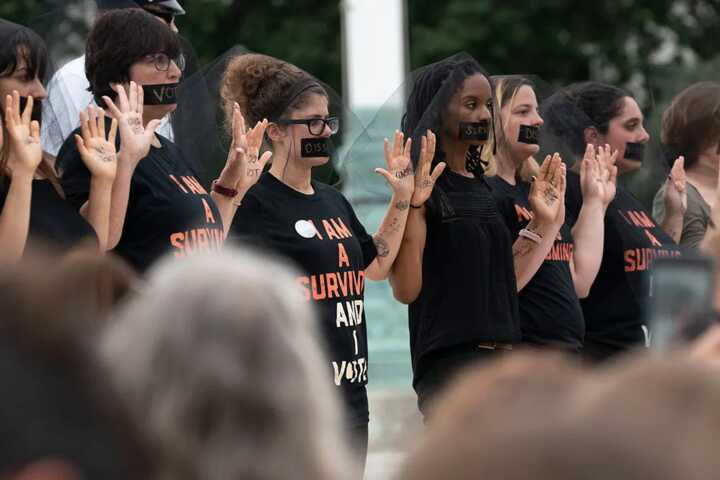Organized crime, systemic corruption, and a culture of machismo are fueling a devastating crisis for women and girls in Mexico, where only a tiny minority of human trafficking cases are investigated by authorities.
Human rights advocates urged Mexican authorities on Monday to strengthen investigations into the disappearances of thousands of women, mainly victims of human trafficking, and fight against the impunity of perpetrators.
Over the past six years, 11,566 women and girls have disappeared just in the State of Mexico —the federal entity surrounding the capital, according to a report released on Monday - the International Day for the Elimination of Violence Against Women.
The report “Who searches for us? Who Cares About Us?” - put together by the International Federation for Human Rights (FIDH), alongside partner organizations Strategic Human Rights Litigation (IDHEAS) and the Mexican Team of Forensic Anthropologists (EMAF) exposed how entrenched criminal networks and collusion with authorities have left families of trafficking victims without justice.
Many of the victims are being transported to other states within Mexico or across the border to the United States. They are often sexually exploited and are sometimes traded between criminal organizations.
A culture of impunity ensures these cases are rarely investigated, let alone prosecuted. In 2021, only between two and six percent of cases of disappeared persons were prosecuted nationwide.
“Systemic corruption,” where state officials are often bribed or in some cases even directly involved in trafficking activities, “ensures that criminal networks operate freely and that victims are ignored,” according to the report.
This leaves relatives, and especially mothers alone, facing a long, costly, and dangerous searches for victims. “In a corrupt system, families are the only ones seeking the truth,” said Jimena Reyes, Director of FIDH’s Americas Office.
However families seeking justice face threats, extortion, and even criminalization for their efforts. One case cited in the report involved a young woman who disappeared after accepting a job at a restaurant. Her family’s attempts to alert authorities were ignored. Desperate, her brother reportedly infiltrated the criminal network to gather information but was later arrested for alleged links to organized crime.
The report also underscores how judicial apathy is rooted in patriarchal norms that “trivialize violence against women.” Disappearances are frequently dismissed as “voluntary absences,” and trafficking victims are rarely recognized as such, allowing criminal networks to evade scrutiny.
“These horrors are the product of a violent, machista and sexist patriarchal culture. Violence against women is normalized.” said Juan Carlos Gutiérrez, Legal Director of IDHEAS in a press release. “Disregard for the dignity of women victims and their suffering is the constant response of the authorities.”
The report calls for systemic reform to dismantle the criminal-political nexus enabling these crimes, urging the government to prioritize the fight against corruption and organized crime to ensure justice for victims.
“Corruption and organized crime have created a perfect storm of impunity,” said Gutiérrez. “Until the authorities tackle these issues head-on, traffickers will continue to act with complete freedom, and families will remain powerless.”
Read more similar news:
Comments:
comments powered by Disqus


































